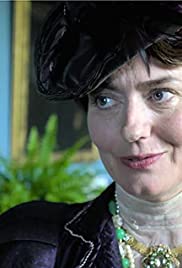
THE IMPORTANCE OF BEING OSCAR
UK, 2018, 84 minutes, Colour.
Anna Chancellor, Anna Devlin, James Fleet, Freddie Fox, Ben Lloyd- Hughes, Alice Orr -Ewing, Nicholas Rowe, Ed Stoppard.
Directed by Richard Curson Smith.
This is a very interesting and entertaining introduction to the life and career of Oscar Wilde. But, it is also interesting and entertaining for those familiar with Wilde and his work.
The narrative informs us about Wilde and his Irish background, his coming to England, his family background, his self-image and his promotion of himself. The narrative becomes more expensive as Wilde is sent on a visit to the United States, charms his audiences, returns full of confidence, the success of his career, the editing of Women’s World, his writing essays, especially The Decay of Lying.
There is a good range of talking heads, experts on Wilde, authors of biographies and studies, the theatre director, Dominic Dromgoole, Stephen Fry, and comments from Wilde’s grandson, Merlin Holland. Many of their comments are illuminating about Wilde, his character, his talent, his way with words, his theories about the perfection of beauty, his crises.
Throughout the film there are quite a number of photos of Wilde and his family, of Lord Alfred Douglas, of the Marcus of Queensbury, of newspapers, of cartoons, theatre programs…
But what is distinctive about this film is that there are extensive dramatisations of his plays, and of aspects of his life.
There is an excellent assembly of actors performing in the excerpts from the plays, taking up several roles from the different plays. There is also a motif throughout the film, actor Nicholas Rowe portraying Wilde himself, looking into three mirrors, and speaking a variety of aphorisms and quotations from Wilde himself.
Wilde was challenged to do something creative in 1890, and the result was The Picture of Dorian Gray – with some dramatisations of the painting of the portrait, the challenge to Gray himself, and a return at the end to his destruction of the portrait. Each of the four major social comedies of manners is set in their context between 1891 and 1896. And, there are also excerpts from Salome.
And, during the first half of the 1890s, there is a focus on Wilde himself, his sexuality, his relationship with his wife, Constance, and their children, even reading them fairytales – and the context for his stories, The Canterville Ghost and The Happy Prince.
The narrative also explains the context of the rent boys and the male prostitutes in London, his connection with Alfred Lord Douglas and Douglas staying with the family, Constance approving, not realising the nature of the relationship. There are the ups and downs in the relationships, Douglas pleading with Constance to get Wilde to write to him, the reconciliation, suggestions about the unbalanced nature of Lord Douglas.
There is some background to the Marcus of Queensbury and his attitudes, his wanting to upset the premiere of Earnest, the famous card with its misspelling. Wilde made bad judgements about suing the Marcus of Queensbury, the nature of the charges (and the strict legislation of the 1890s about homosexual associations)), losing his case, two years hard labour in Reading gaol, some information about his subsequent time in Europe and some quotations from De Profundis.
The film is particularly interesting in its comments about Wilde and his plays and how each of them contributed to what was happening in his own life, in relationships, in deception, double standards… The comments make a very good case – and it is, of course, the same with Dorian Gray, the open facade, the ageing portrait in the attic, the eventual coming to light of the portrait and its destruction.
This film can certainly be recommended for those interested in knowing more about Wilde and understanding his work and his life.
Wilde has being portrayed on screen by Robert Morley, Peter Finch, Stephen Fry, and, in The Happy Prince, by Rupert Everett.